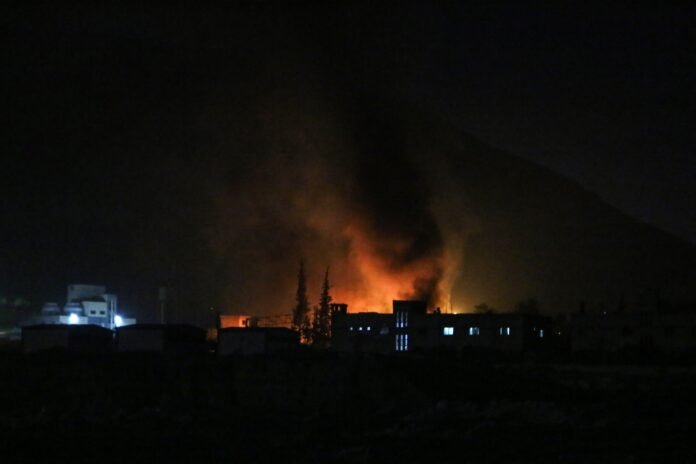Kuwait condemns Israeli strikes on Syria as a “blatant violation” of the country’s sovereignty. The Ministry of Foreign Affairs said this in a statement on Friday following airstrikes near the Syrian presidential palace in Damascus.
The Kuwaiti ministry expressed deep concern over the escalating violence. They called on the international community to act swiftly to prevent further destabilization in the region. “Justifying such attacks under security pretexts does not legitimize any violation of a country’s sovereignty,” the ministry stated.
Since the political shift in Syria following the fall of former President Bashar Al-Assad in December, Kuwait condemns Israeli strikes on Syria has become a consistent stance. Israeli military actions have intensified in recent months. There have been air and ground operations reported across southern Syria. Israeli officials have publicly expressed concern over the policies of Syria’s new president, Ahmed Al-Sharaa.
On Friday, Israeli airstrikes hit targets in Damascus, Hama, and Daraa, according to the state-run Syrian Arab News Agency (SANA). At least one civilian was killed and four others were wounded in Hama, the agency reported. Israel’s military confirmed the operation, stating that it had targeted a military facility, anti-aircraft defenses, and missile infrastructure. However, they provided no further details or supporting evidence.
Tensions have also surged in Sweida following violent clashes between pro-government forces and Druze fighters. These clashes left more than 100 dead. In response, Druze leaders and Syrian officials issued a joint statement rejecting external intervention. They also affirmed their loyalty to a unified Syrian state.
“We don’t need anyone’s protection,” said Sheikh Laith al-Balous during a televised interview. He was responding to claims that Israel’s operations were in defense of the Druze population.
Kuwait condemns Israeli strikes on Syria and reiterated its firm position supporting Syria’s unity and territorial integrity. It urged global powers to uphold their humanitarian responsibilities and stop what it called repeated violations that threaten regional stability.


